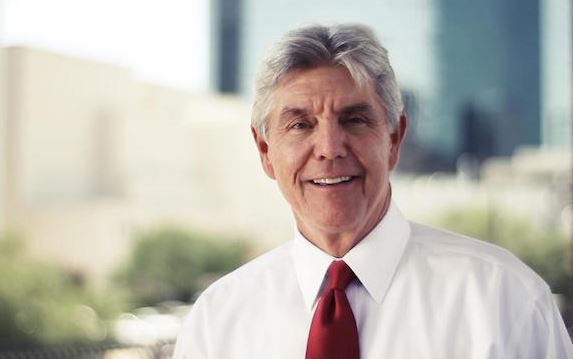On the progress of the post-recession economic recovery, President Obama and his administration painted a prettier picture than reality every chance they got.
When they were reminded that two percent growth was nothing to write home about, they preached to their critics like school children. Concerns were laughed off because the unemployment rate was declining and the stock market was at record highs.
To the previous administration, it didn’t matter that the unemployment rate doesn’t factor in those who have given up looking for work. A more accurate measurement, the labor force participation rate, was, and continues to be, at its lowest percentage point since Jimmy Carter’s presidency.
As far as the rallying markets go, Americans who struggle to put food on the table are not kept awake at night by the thought that their portfolios are not matching the performance of the S&P500. The Obama Administration was out of touch, and their policies reflected that.
Here’s a scenario to consider:
A single parent is forced to work multiple jobs because Obamacare’s employer mandate forced her boss to cut her working hours below the 30 hour a week threshold.
Now imagine her frustrations after being told that there will soon be a fee increase on, or choice limitations to, the product that allows her to pay her bills and make purchases electronically.
In part due to rising checking account fees and minimum balance requirements at your everyday financial institutions, up to 68 million Americans, many of whom do not have direct deposit, use prepaid cards and accounts to manage their day-to-day financial needs.
Last year, the Consumer Financial Protection Bureau issued almost 1,700 pages of expensive and restrictive regulations on the providers of prepaid cards and accounts. That same agency, just last week, postponed the rule for another six months after outrage. Compliance costs are estimated to be in the hundreds of millions of dollars, and they will be passed down to the consumers who cannot afford to participate in our traditional banking system.
For eight years, Obama Administration bureaucrats regulated with a one size fits all policy on matters they didn’t bother to educate themselves on. We have seen how the Dodd-Frank regulatory hurdles have decimated community banks and credit unions, and now we are about to see similar effects on alternative financial services. Just as the former ultimately hurt small business’ ability to access credit, the latter will disadvantage those who want to securely manage their finances at a low-cost rate.
Fortunately, the Congressional Review Act gives the legislative branch the tools to quickly repeal certain harmful, last minute executive regulations.
That is why I have introduced a CRA bill to dump this nonsensical CFPB rule before it takes effect. H.J.Res.73 has the support of 33 of my colleagues on the Financial Services Committee, including the chairman, and our fellow Texan, Congressman Jeb Hensarling.
Legitimate oversight over our financial sector is important, but when the rogue CFPB, which has already been declared unconstitutionally structured by a federal court, creates arbitrary compliance measures that could hurt up to 20 percent of Americans, it is the responsibility of the Congress to rein in its out of control power grab.
Williams is a Republican from Texas and serves on the Financial Services Committee in the U.S. House of Representatives. He is the vice chair of the subcommittee on Monetary Policy and Trade.






